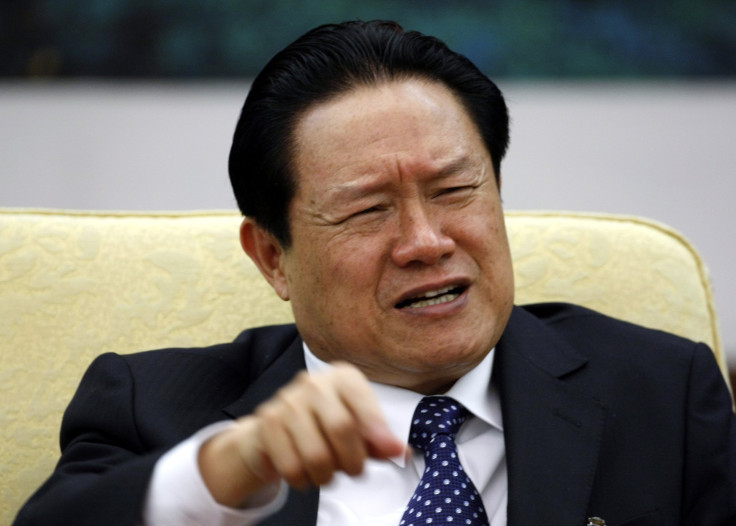Will Zhou Yongkang's Downfall Change Chinese Law?

As recently as two years ago, Zhou Yongkang stood near the pinnacle of Chinese politics. One of nine members of the Standing Committee of the Politburo, the country’s highest governing body, Zhou controlled China’s vast domestic security apparatus, giving him jurisdiction over police, intelligence services and courts. Earlier stints as the boss of the China National Petroleum Corporation, a state-run energy giant, and as party secretary of Sichuan Province, cemented his status as one of the country’s most powerful, well-connected men, and allowed his relatives and associates to amass a business empire worth an estimated $14 billion.
Now, the empire has collapsed: On Tuesday, the Chinese government announced that the former security czar was officially under investigation for unspecified disciplinary violations, a tell-tale sign in China that Zhou’s punishment will come sooner rather than later. Although Zhou is hardly the first Chinese politician to be indicted, his powerful stature presents Beijing with a unique challenge.
Historically, the People’s Republic of China has taken an ad hoc approach to jurisprudence, and several purged officials -- including former President Liu Shaoqi -- were imprisoned without trial. But since Jiang Zemin assumed the presidency in 1989, the country has had three high-profile corruption charges involving senior politicians:
Beijing Party Secretary Chen Xitong was indicted for embezzling Party funds in 1998 and served eight years in prison before being released for health reasons. Following his release, Chen claimed his arrest was the result of a power struggle with Jiang Zemin rather than due to corruption.
In 2008, former Shanghai Party boss Chen Liangyu -- and rival of then-president Hu Jintao -- was convicted for accepting bribes totaling $340,000. He remains in prison today.
Last August, Bo Xilai, a former party secretary of Chongqing, was felled in a spectacular corruption scandal involving his wife’s successful plot to murder Neil Heywood, a British expat and former business partner. Bo, once considered a shoo-in for the Standing Committee of the Politburo, was convicted of corruption, abuse of power, and accepting bribery and was given a suspended death sentence.
But while all three of these trials attracted international attention, Zhou Yongkang’s may ultimately have the most political significance. According to Victor Shih, an expert in Chinese politics at the University of California San Diego, Zhou’s arrest “breaks down the implicit understanding, that had been in place since Deng Xiaoping launched reforms in 1978, that Politburo Standing Committee members would not be arrested and tried for corruption.”
“[Zhou’s downfall] now means that no group or leader is now safe from a corruption investigation.”
Zhou’s trial also has implications for the Communist Party’s stated goal of establishing the rule of law, which will form a central theme of China’s upcoming 4th Plenum political meeting. Having a trial -- even one where the outcome is fixed -- allows Beijing to claim that Zhou’s corruption charge was legitimate rather than the result of a political power struggle. Reuters reported Wednesday that Xi sought the consensus of his two living predecessors -- Jiang Zemin and Hu Jintao -- before proceeding with the case against Zhou, reducing fears that Zhou’s case may trigger factional infighting within the Communist Party leadership. A trial, according to Shih, would reinforce the sense that China is moving towards a more stable legal system.
“There have been a lot of rumors that there had been a disagreement between Xi and his predecessors over what to do with with Zhou, so putting him on trial would put these to rest.”
Still, China's legal system remains tied to the whims and directives of the Communist Party.
“No rules or law will stand in the way of the dominance of the CCP,” Shih says. “It isn’t the rule of law, but really the rule by law.”
© Copyright IBTimes 2025. All rights reserved.






















